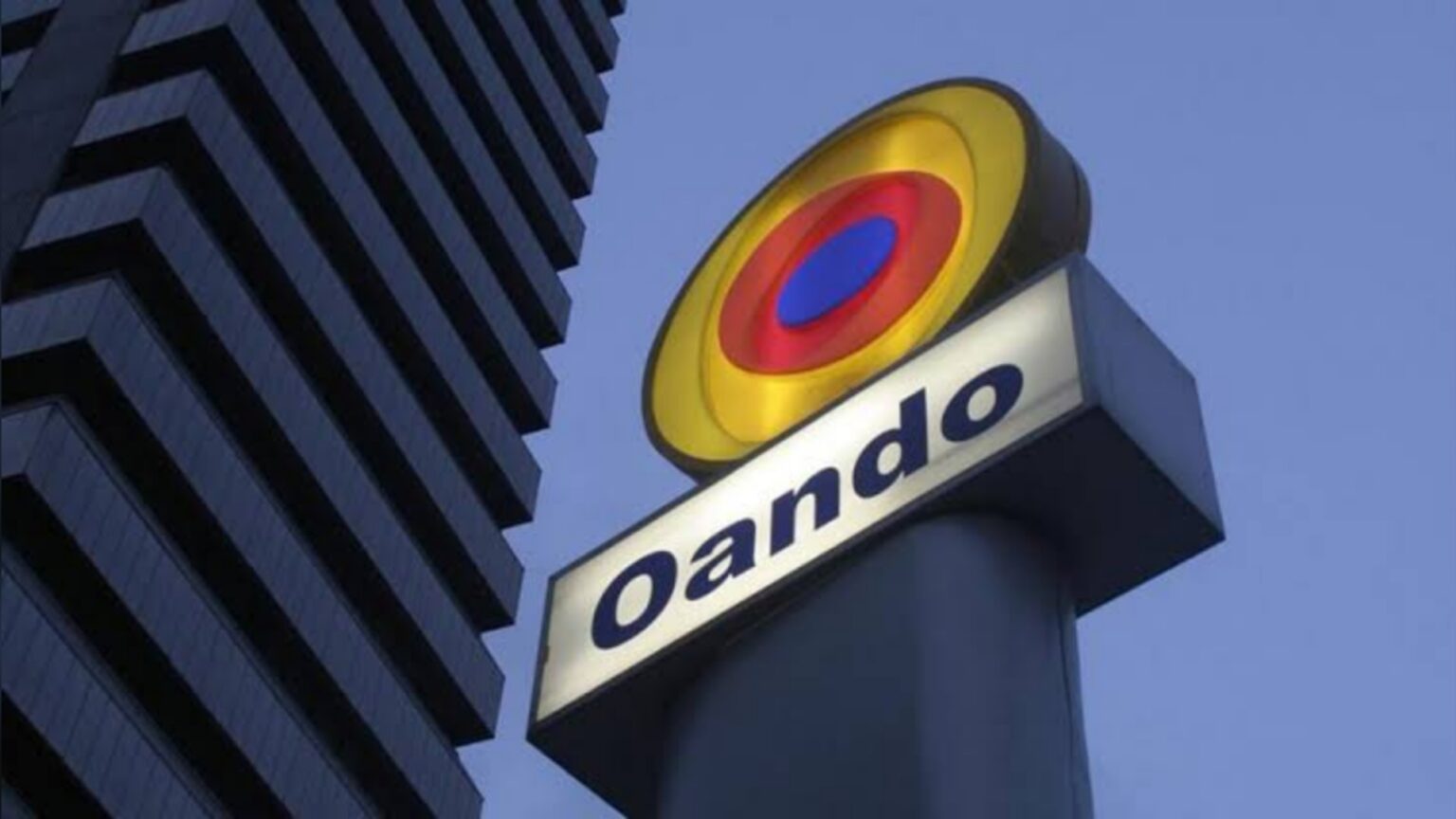Global Courant 2023-04-26 17:41:55
In furtherance of Oando Clean Energy Limited’s (referred to as “Oando Clean Energy” or “OCEL”) commitment to the Lagos Metropolitan Area Transport Authority (referred to as “LAMATA”), as disclosed in Press Release 1 dated Monday, June 6, 2022 OCEL is pleased to announce that it has taken delivery of the electric public transport buses that will kick off the Proof of Concept phase of our Sustainable Transport Initiative.
On Thursday, April 28, 2022, OCEL and LAMATA, the Lagos State Government Agency charged with planning, implementing, regulating and franchising sustainable integrated public transport in Lagos, signed a Memorandum of Understanding (MoU) to enable the successful deployment of an electric vehicle (EV) infrastructure ecosystem (electric buses, charging stations and other supporting infrastructure) for achieving a sustainable road transportation system in Lagos State. The Memorandum of Understanding will also bridge the gap in the current public transport bus system for the increasing number of commuters in Lagos and be a significant part of the state government’s larger effort to improve public transport infrastructure.
In line with its culture of excellence, OCEL partnered with Yutong Bus Co Limited (also called “Yutong”), the world’s largest electric vehicle manufacturer producing electric buses equipped with air conditioning and Wi-Fi. In addition to the arrival of these electric buses, OCEL has also taken delivery of the charging stations and spare parts necessary to ensure their effective operation.
Consequently, and in accordance with the provisions of the partnership between OCEL and LAMATA, the receipt of both the buses and charging stations marks the start of our Sustainable Transport Initiative, one of the company’s pipeline projects to support Nigeria in achieving its goal of net zero in 2060.
The company’s strategic vision is to decarbonise Nigeria’s transportation system, thereby enhancing the socio-economic impact of transportation in the country. Over the next seven years, and through the roll-out of more than 12,000 buses, this initiative will convert current public transit combustion buses to electric, starting in Lagos State and eventually nationwide.
In the medium to long term, and in line with our ambitions, our sustainable transport efforts will lead to better air quality, better public health, the hiring of at least 3,000 new drivers and an additional 2,000 employees to support bus maintenance, management, etc. as well as estimated economic cost savings of US$2.6 billion (3.6% of Lagos’ GDP).
OCEL logo
In particular, the company’s EV rollout plan is strategically aligned with the Nigeria Energy Transition Plan (NETP); in particular, supporting the government’s roadmap for electric vehicle deployment across Nigeria and its medium-term ambition to increase local capacity through the construction of electric vehicle assembly plants.
The Oando-Yutong Joint Venture Partnership will achieve the following:
The manufacture and deployment of additional electric buses during the pilot and roll-out phase of the partnership with Lagos State through LAMATA. Design and facilitate training programs targeting the following critical stakeholders: bus drivers, bus operators and regulators, including but not limited to LAMATA and the Department of Transportation. Provide technical support and after-sales service. Manage a supply chain network to support spare parts availability when needed. Construction of a local electric vehicle assembly plant to increase in-house capacity.
Mr. Frank Lee, General Manager of Yutong West Africa, commented: “This is a turning point for Yutong. It is our first delivery of electric public transport buses in Sub-Saharan Africa and the first step in the large-scale implementation of an electric-powered public road transport system in Nigeria. We are excited to embark on this journey in partnership with Oando, an organization with a history of outstanding performance in the energy sector, and hope to see a swift turnaround in our joint plans to make all facets of the country’s transition to environmentally friendly. promote vehicles, including the development of local capacity by offering and exposure to comprehensive training programs for all stakeholders, from drivers to operators and regulators. Our foray into Sub-Saharan Africa has transformed us into a global electric vehicle supplier with customers in the Middle East, Europe, South America and Asia. Our electric vehicles offer excellent performance due to their advanced technological capabilities and different terrain testing; All this makes our buses particularly suitable for use as a means of public transport in Nigeria.”
OCEL Chairman Adewale Tinubu further said: “Boldness and innovation have always been key principles in our journey to transform Nigeria’s energy future. It is this spirit that has brought us to this moment today – at the forefront of propelling Nigeria towards realizing its net zero goals. The arrival of our electric buses for public transport and the development of an EV infrastructure ecosystem remind us that the only way to stay ahead is to not be afraid to break new ground and to consistently look for opportunities to jump. Moreover, this project underscores the African proverb: ‘If you want to go fast, go alone; If you want to go far, go together.’ Public-private partnerships have been critical in getting the project to this point and will continue to fuel our expansion across the country. I must commend the joint efforts of the Lagos State Government through LAMATA to bring this project to a successful conclusion. The launch of this project gives us a platform to show other states what is possible and open the door to agreements on tailor-made solutions to meet their local needs, and to act as a model for other organizations that want to venture into sustainable transport.”
In his remarks, OCEL’s President & CEO, Dr. Ainojie Irune: “This is a pivotal moment for Lagos State and the country as a whole. The development of a sustainable transport ecosystem is much more than the deployment of electric vehicles; it is about reducing the ecological footprint of the seven million public transport commuters and positively influencing the socio-economic indicators related to transport. The EV infrastructure, built to enable optimal bus efficiency, will be the artery of tomorrow’s EV use in Nigeria by providing charging stations, maintenance, spare parts, skills development and knowledge transfer. The transition from an idea proposal to an operational initiative is a confirmation of our collective commitment to achieving the country’s ambition to become a carbon neutral emitter by 2060. For us at OCEL, Lagos State is just the beginning, we look forward to replicating this model nationwide through strategic partnerships across the public and private sectors.”
About OCEL
OCEL is the renewable energy subsidiary of Oando Energy Resources, part of the Oando PLC group of companies. Headquartered in Lagos, Nigeria, our agenda is to invest in climate-friendly and cost-effective energy solutions across the African continent; meet our demand by using green and renewable resources while striving for a carbon neutral Africa.
Our core areas include sustainable transportation, solar energy solutions, gas and biofuels, waste to energy, wind farms, geothermal power plants, hydropower and other emerging technologies.




